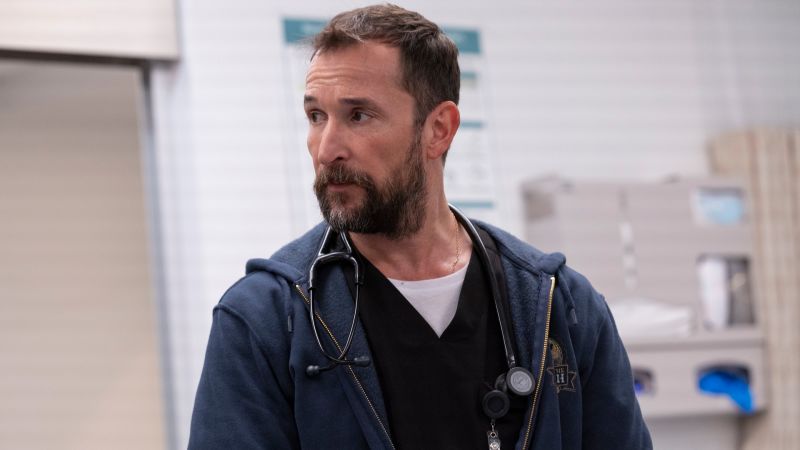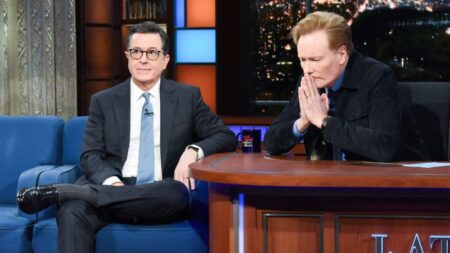In today’s intricate tapestry of medical dramas, “The Pitt,” featuring Dr. Michael “Robby” Robinavitch—portrayed by the talented Noah Wyle—stands out as a beacon of authenticity and compassion. This fictional narrative, set in a bustling Pittsburgh emergency room, provides a profound glimpse into the world of emergency medicine, keeping viewers engaged not merely through drama, but through a genuine representation of the challenges and tribulations faced by healthcare workers. The character of Dr. Robby encapsulates the heroic essence of healthcare professionals, infusing life into what could easily devolve into mere tropes and clichés.
Dr. Janet Semple-Hess, an esteemed emergency department physician with over three decades of service at Children’s Hospital Los Angeles, has vocalized her admiration for Robby’s character. She described him as the embodiment of calm sincerity, expressing how the portrayal connects with reality. “He exudes this quiet, calm sincerity,” she remarked while commending Wyle’s capacity to evoke genuine empathy through his performance. Semple-Hess, who has witnessed the evolution of her own career alongside Wyle’s character— from the ambitious intern to the seasoned expert in the long-running show “ER”— finds Robby’s journey emblematic of her own.
The emotional weight of her profession is further magnified as she prepares for retirement after 33 years. Remarkably, the visit from the “The Pitt” cast during the Make March Matter campaign added a touching chapter to her career. In the viral social media footage, one can see Semple-Hess grappling with tears of joy as she encounters Wyle, underscoring the tangible bond between fiction and real-world healthcare experiences. This connection resonates deeply with the public, who appreciate seeing healthcare workers genuinely recognized and portrayed on screen.
The storyline in “The Pitt” does not shy away from the more harrowing realities that beset modern-day healthcare, delving into themes such as emotional burdens of losing patients and the complex interplay between hope and despair. An emblematic moment features Robby reciting the Shema prayer amid a panic episode, articulating his struggle with faith despite being surrounded by tragedy. Such poignant moments serve to humanize the narrative, allowing viewers to witness the emotional toll of emergency medicine viscerally.
The producers and actors acknowledge that their audience harbors a yearning for connection, especially in these profoundly stressful times following the Covid-19 pandemic. Executive producer John Wells explains that Wyle’s portrayal offers viewers an aspirational figure— “the doctor you hope will walk through the door.” This sentiment underlines the series’ ultimate goal: to inspire hope and recognize the humanity inherent in healthcare.
In tandem, Dr. Bradley Goldberg, another emergency medicine physician, has praised the series for its accurate depiction of emergency care. He articulates that, within the bustling confines of the emergency department, nuances like triage are vital. The show captures these dilemmas authentically, portraying how physicians juggle competing needs while upholding a sense of diligence and empathy.
Moreover, “The Pitt” succeeds in addressing pertinent societal concerns like healthcare staffing shortages, anti-vaccine sentiment, and the genuine dangers that many navigate daily. The show does not merely entertain; it serves as an education tool, driving powerful public service messages about safety and health awareness.
Notably, Dr. Goldberg states that the attention to detail in procedures and protocols distinguishes “The Pitt” from other medical dramas. Such fidelity to realism resonates not only among the healthcare community but also with viewers who appreciate accuracy in storytelling. The show exemplifies the true landscape of a “safety net hospital,” highlighting the myriad experiences encountered by healthcare providers.
In conclusion, amidst its fictional narratives and dramatic plotlines, “The Pitt” embodies a core message—being seen and heard, particularly in a time of crisis. This idea resonates deeply with both healthcare practitioners and viewers alike, marking a significant step toward fostering understanding and empathy in a world that often feels disjointed and chaotic. The show and its characters ultimately uplift the discourse around healthcare by reminding us of the profound impact of compassion and human connection.











